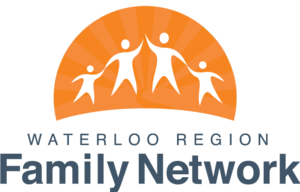
We collect basic website visitor information on this website and store it in cookies. We also utilize Google Analytics to track page view information to assist us in improving our website.
From time to time, the Waterloo Region Family Network (WRFN) is asked to distribute information on behalf of third parties. WRFN provides general information to self-advocates and families of children with special needs. The information provided on this website is not a recommendation, referral or endorsement of any resource, therapeutic method, or service provider. WRFN is not responsible for any information or services provided by third parties. You are urged to use independent judgment when considering any resource.
By Cristina Stanger, Self-Advocacy Liaison, WRFN
*This article was originally published in the Family Pulse Newsletter May 2021*
Semantics can be a tricky thing. Language is constantly evolving in all facets of society. But words also carry a lot of weight, and I try to be very deliberate in how I choose them.
Exceptional. Special needs. Disability. Disorder. Difference. There are so many options used in the space surrounding the individuals and families we support; it can be intimidating, and sometimes confusing, as we strive to respect the rights, needs and values of others as we speak.
It is also important that the words we use communicate our intended meaning. I once saw an “Abilities Office,” and while I appreciate the effort to highlight the positive, it was not particularly clear to me who that office was meant to serve, and that can be problematic too. So I thought I would share my take on the terminology of the day; when do I use what term, and why.
My neurology will always be different from the average person. Physiologically speaking, I am the exception to the rule. Thus, I am exceptional. For a lot of my day-to-day life, I don’t really think about this fact. It doesn’t come up, it’s not relevant, or I’m just busy being me and living life. This difference is there, underlying many aspects of my person and my experience, but it is not really an issue.
When I am in an environment or situation that conflicts with my exceptionality, then some accommodations are required. From my perspective, this is when I have a special need. I need accommodations to help me better operate in a world that wasn’t really designed with me in mind. By meeting this special need, I am able to participate, to be included, to feel valued.
If my special need in a given situation is not or cannot be met, that can feel debilitating. I am disabled because I am not able to participate in the activity, event, or the environment. It is at these times that I feel like I have a disability. And it’s okay to say that. Some people are afraid to use the word disability for fear of causing offense. Conversely, other people use the term disability very freely, not always considering the weight of the word. I fall somewhere in the middle. Perhaps, it’s easier for me to use the word disability in reference to my own self, rather than using it in the context of someone else, so that may be a consideration too.
Generally speaking, I don’t mind what words others use, as long as they are coming from a genuinely well-intentioned place. If there is a blatant misstep I try to politely educate on why a different choice of words might be preferred.
So in summary: I am always exceptional because I am “built” differently. I will have a special need when my exceptionality and environment are not inherently compatible. I feel disabled when this special need goes unmet, or simply cannot be accommodated.
It’s impossible to find one word that will make everyone happy and that will be universally understood or adopted. And I sometimes wonder, what language will we be using 20 years from now? But for right here, and right now, I choose “exceptional” more often than not.